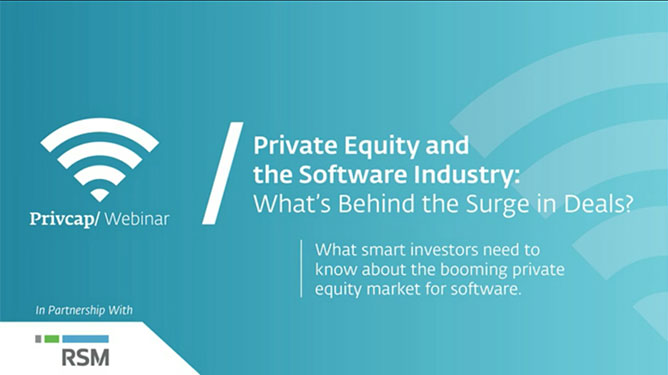Why Riverside Likes Central & Eastern European Tech
Solid fundamentals are driving private equity investments to the highest level since 2009
The East is once again on the rise. The latest Central and Eastern European Private Equity Statistics report by Invest Europe, shows investment in Central and Eastern Europe (CEE) in 2015 climbed 25 percent year-on-year to €1.6B ($1.79B).
One of the firms taking advantage of this resurgence is The Riverside Company, which has been active in CEE since 1988 and has two active investments there: Bohemia Interactive Simulations in the Czech Republic, which makes simulation training games and supplies the U.S. Department of Defense, U.K. Ministry of Defense, and Australian Defense Force, among other clients; and Fadata in Bulgaria, which develops software for the global insurance industry.
Deals in the region typically fall into two categories. There are the localized PE deals, where, say, a deal in Poland will remain in Polish control and focus on the domestic market. “When you are looking at those monogeographic, localized deals, there tends to be pretty intense competition from lots of different potential buyers,” says Martin Scott, a Riverside partner based in the firm’s London office. “There are PE firms, there are family offices, there are other local players all looking at those deals, and it is hard to really differentiate yourself.”

Riverside likes local businesses that can expand to international markets. The firm, which has offices across Europe, Asia and the U.S., is currently working to give Bohemia Interactive the international footprint needed to succeed in the defense market. Just 12 weeks after inking the deal, Riverside established Bohemia’s presence in the U.S. with an acquisition. “No local investors in the Czech Republic would have anything like that capability, so this was a real edge for us,” says Scott.
Riverside focuses on deals in the tech and consumer sectors—particularly in tech because there are real advantages in the region. “There are good education standards and the kids here start programming at an early age, which is not necessarily true in other Western countries,” says Scott. “Plus, a really good programmer in, say, Romania is cheaper than almost anywhere else.”
Tech companies also travel well. “If you make good technology, you can take it to any market in the world,” says Scott. And the region’s tech workers themselves are more loyal, he believes. “In a place like India, you can spend a year or two building a development team and then a competitor can come in the next day and hire them all away,” Scott said. “That doesn’t happen in the CEE.”
Challenges, while real, are not overwhelming. Some countries face political instability, so investors have to decide where they are comfortable doing business. Deals are smaller and slower than many global PE firms would find attractive. “It’s not like doing business in London,” notes Scott.
GPs may also have to court an attractive company for many months, even a year. “These founders and owners are not especially familiar with the process,” Scott says. “You need to work with them and develop trust. And a deal isn’t done until it’s done. You can get 90 percent done with a deal and it can still suddenly fall over. But if you put your time and investment into a business here, you do get loyalty and staying power.”
Solid fundamentals are driving private equity investments in a region of Europe to the highest level since 2009.
